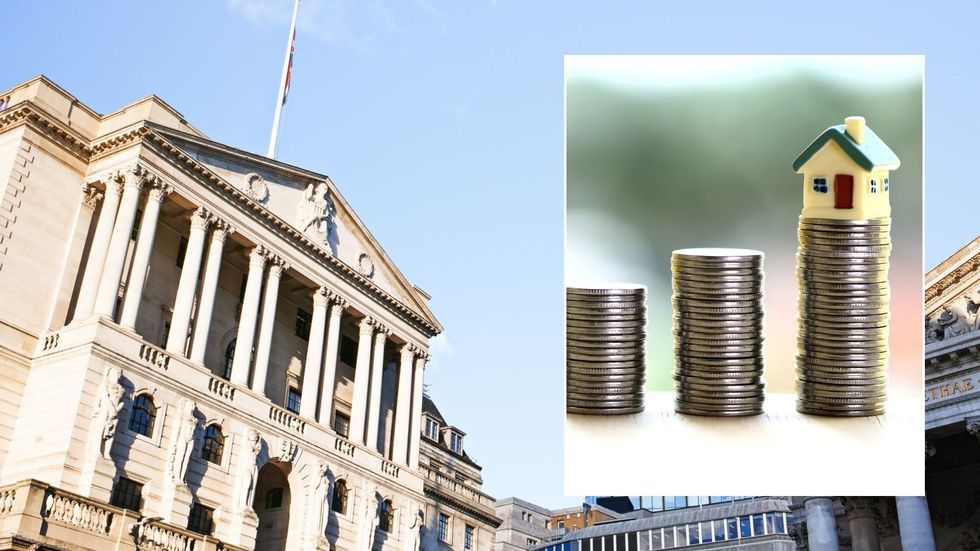Rent in UK soars by £240 more per month since Covid in cost of living blow, shocking research finds
Renters are now paying an average of £270 more per month compared to post-pandemic levels, new research has revealed.
The stark increase means tenants face an annual rental cost of £15,240, based on data home search portal Zoopla.
The total yearly increase of £3,240 since the end of Covid-19 lockdowns highlights the mounting pressure on Britain’s renters.
The surge in rental costs comes amid the ongoing cost of living crisis which has seen a period of hiked interest rates that have impacted the property market and mortgages.
This sharp rise in rental costs began in 2021 as Covid-19 lockdown restrictions were lifted, triggering increased housing demand.
A severe shortage of available properties coincided with this surge in people looking to move home.
The rental market has seen costs soar by 27 per cent during this period, significantly outpacing the 19 per cent rise in average income.
This growing disparity between rental costs and earnings has forced many tenants to consider relocating to more affordable areas.
Zoopla reports that the pace of rent increases has now reached its lowest point in three years, as affordability constraints continue to detrimentally impact the market.
Do you have a money story you’d like to share? Get in touch by emailing money@gbnews.uk.

Richard Donnell, the executive director at Zoopla, contextualised what these figures indicate about the wider economy and why renters appear to be getting a bad deal.
“Private renters moving home have faced rents rising faster than earnings over the last three years,” the property expert explained.
“The number of rented homes hasn’t grown since 2016, creating scarcity for renters at a time when demand has boomed on a strong labour market and the rising cost of home ownership.
“Rental growth has slowed but we expect an ongoing lack of rental supply to keep an upward pressure on rents.
“Private renters moving home have faced rents rising faster than earnings over the last three years.”
The housing market has faced significant supply challenges, with no growth in rented homes since 2016.
Analysts have claimed this scarcity has been particularly problematic during a period of increased demand driven by a strong labour market.
Rising home ownership costs have also contributed to the pressure on the rental sector. Despite the recent slowdown in rental growth, Zoopla expects continued upward pressure on rents due to the persistent lack of rental supply.
The availability of rental properties remains below pre-pandemic levels across most of Britain.
As it stands, the East Midlands appears to be only region exempt from this trend.
Private landlords have been reducing their property portfolios in recent years, driven by increasing mortgage costs.
The Bank of England’s Monetary Policy Committee (MPC) opted to raise the base rate in response to inflation.
Back in October 2022, the UK’s consumer price index (CPI) rate reached a height of 11.1 per cent. This led the central bank’s MPC members to increase rates to 5.25 per cent which was passed onto mortgage holders.
In turn, landlords have passed on part of the cost to renters. However, there are signs of improvement on the horizon, according to Zoopla. The company reports the peak of private landlords selling their properties appears to have passed.
LATEST DEVELOPMENTS:
- Retirement crisis looms as over 1m Britons trapped in mortgage deals past state pension age
- Nationwide unveils exact date customers will get free £100 bonus – but who is eligible?
- ‘My five crucial steps towards planning for a comfortable retirement’

Many landlords are now waiting for interest rates to decrease before expanding their portfolios again.
This potential future increase in property purchases could help boost supply in the rental market.
Labour has pledged to construct 1.5 million new homes over five years, with plans to ease planning regulations.
However, Zoopla does not anticipate a significant increase in rental properties in the coming year.
Donnell emphasised the importance of addressing housing supply, stating: “The ambitions to expand home building are important, as the quickest way to ease the pressure on renters is to boost the supply of private and social rented homes.”
He added that private landlords remain crucial to the rental market: “Private landlords will continue to play an important role and should be encouraged to remain in the market.”

